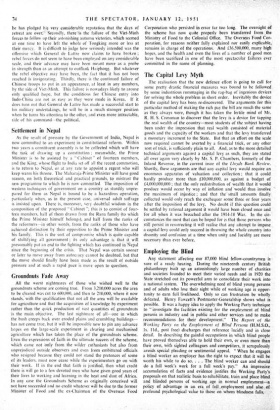Settlement in Nepal
As the result of pressure by the Government of India, Nepal is now committed to an experiment in constitutional reform. Within two years a constituent assembly is to be collected which will have the task of drawing up a constitution ; meanwhile, the Prime Minister is to be assisted by a "Cabinet" of fourteen members, and the King, whose flight to India set off all the recent commotion, is to return to Nepal, or at any rate to appoint a regent who will keep warm his throne. The Maharaja-Prime Minister will have good reason, on both theoretical and practical grounds, to mistrust the new programme to which he is now committed The imposition of western techniques of government on a country as sturdily unpre- pared for them as Nepal is bound to be a hazardous operation, particularly when, as in the present case, universal adult suffrage is insisted upon. There is, moreover, very doubtful wisdom in the composition of the proposed "Cabinet "; this is to consist of four- teen members, half of them drawn from the Rana family (to which the Prime Minister himself belongs), and half from the ranks of the reformers—in other words, from the ranks of those who have achieved distinction by their opposition to the Prime Minister and his family. This is the sort of compromise which is quite capable of stultifying all government ; its only advantage is that it will presumably put an end to the fighting which has continued in epal since the beginning of the crisis. That Nepal was certain sooner or later to move away from autociacy cannot be doubted, but that the move should finally have been made as the result of outside pressure and at such a rapid pace is more open to question.


































 Previous page
Previous page